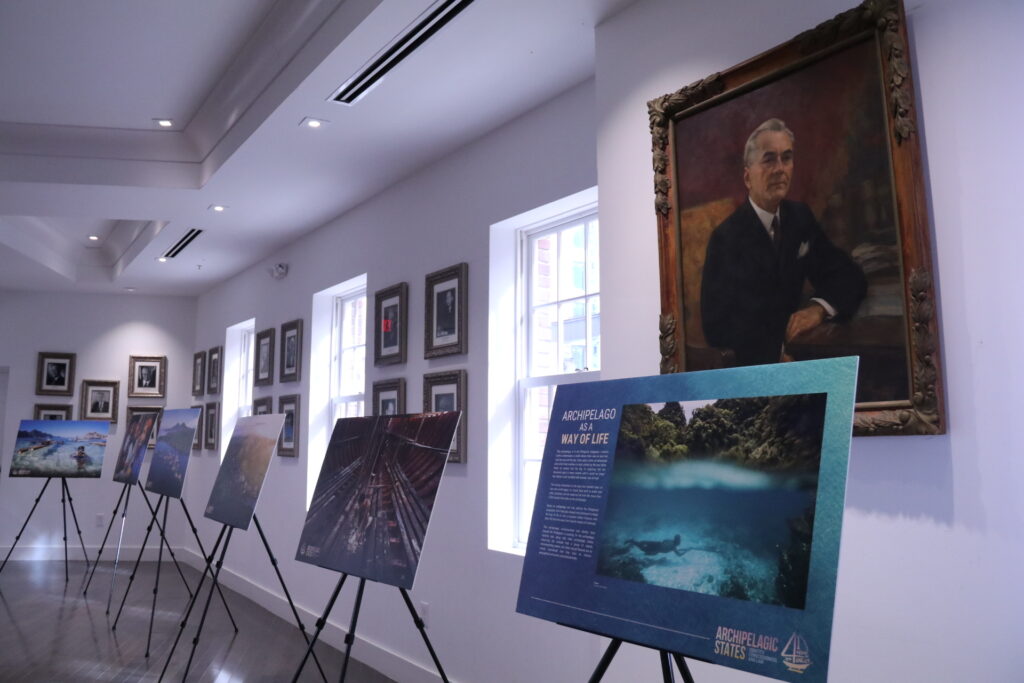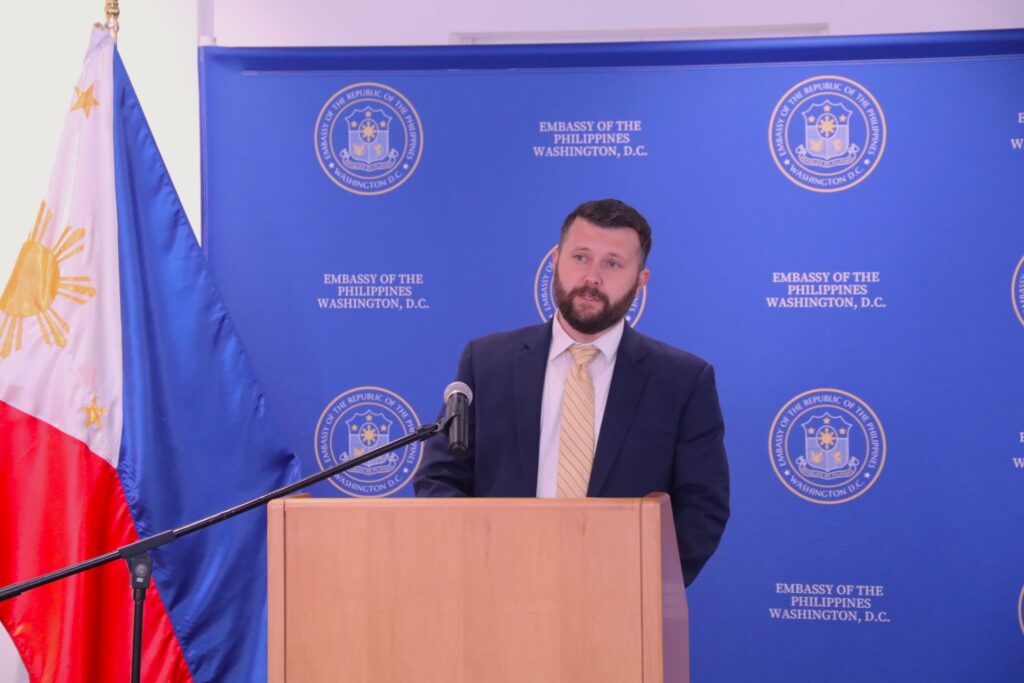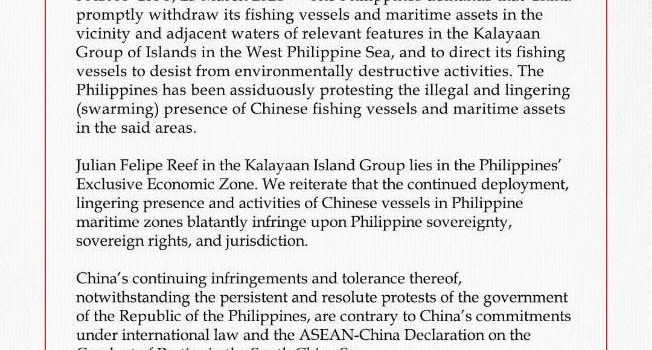An Exhibit on the Philippines as an Archipelagic State
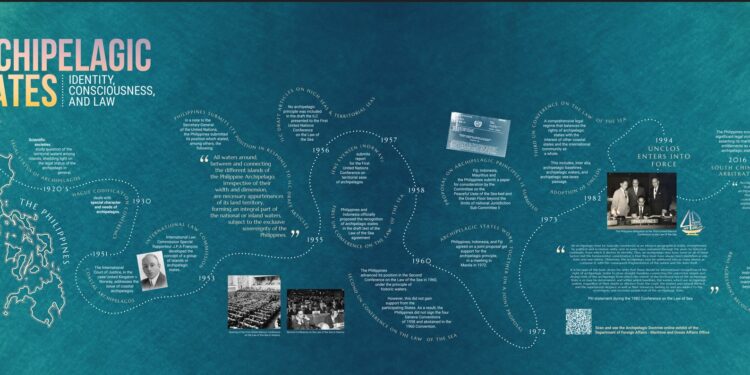
The Philippines as an Archipelagic State: Identity, Consciousness and Law
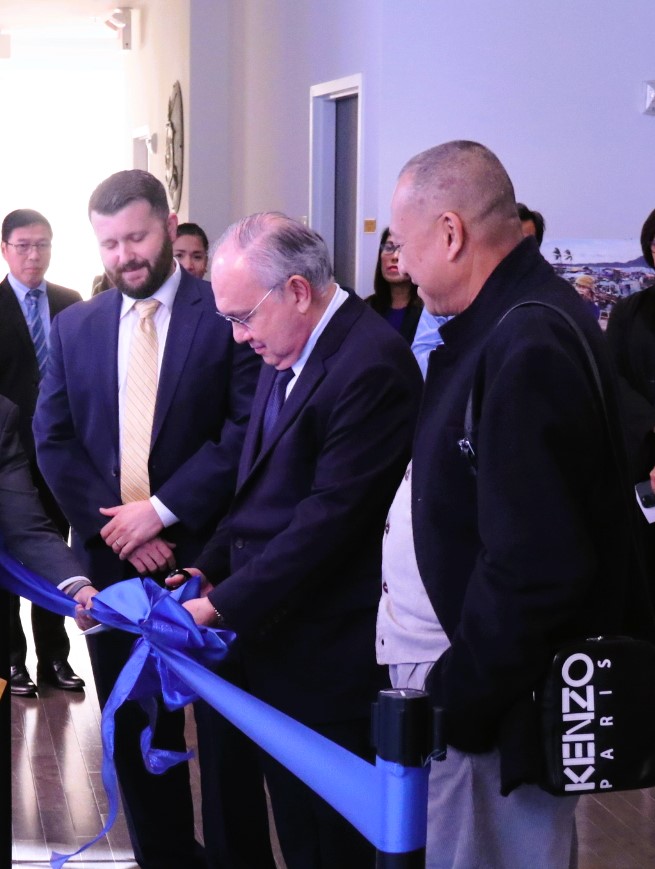
Ambassador Jose Manuel Romualdez leads the ribbon-cutting ceremony to formally open the exhibit on “Archipelagic States: Identity, Consciousness and Law.” 16 October 2023, Washington DC. Photos courtesy of the PH Embassy.
In commemoration of the annual Maritime and Archipelagic Nation Awareness month, an exhibit titled “Archipelagic States: Identity, Consciousness and Law,” was formally opened at the Philippine Embassy Washington DC on October 16, 2023. The exhibit consists of an Archipelagic States mural that traces the legal status of an archipelago from the 1920’s along with several photographs illustrating interconnectivity of the sea to everyday lives of Filipinos. Ambassador Jose Manuel Romualdez welcomed representatives from Washington policy institutes, members of the diplomatic corps, the U.S. Department of State and Department of Defense, and the US-Philippines Society.
In an informative presentation, Gregory Poling, Director of the Asia Maritime Transparency Initiative (AMTI) of the Center for Strategic and International Studies, described how the Philippines successfully advocated for the Archipelagic Principle, “an important concept that unites land, water, and people into a single legal entity, in the United Nations Convention on the Law of the Sea (UNCLOS).”
Poling pointed out that while the Philippines is an archipelagic state as a matter of geography, it took decades of hard work to ensure that the Archipelagic Principle was recognized in law. At the dawn of the 20th century, maritime rights under international law were limited to just a 3-mile territorial sea, which was inherently unfair to archipelagic states whose territory was in many cases separated by much more than that.
Poling related that when the first United Nations Conference on the Law of the Sea convened in 1958, the Philippines and Indonesia jointly proposed a new legal concept of the archipelagic state with its islands connected by straight baselines and all the waters within recognized as belonging to that state. The Philippines and Indonesia continued to fight for that concept and finally saw it accepted in the 1982 UN Convention on the Law of the Sea.
“The Philippines became the first country to write the new rules of that convention into its constitution in 1987. It further brought its maritime claims into compliance with UNCLOS with the 2009 Archipelagic Baselines Law and with the 2016 South China Sea Arbitration victory,” Poling stated.
Poling noted that the Philippine Congress is currently debating a new Maritime Zones Act and an Archipelagic Sea Lanes Act to continue this trend of ensuring Philippine domestic law reflects those hard-won diplomatic victories that Manila has championed on the international stage. For that, the Philippines should be commended as a champion of international maritime law, furthering that country’s interests as it seeks to maintain the legal and moral high ground in its maritime disputes.
The exhibit is open to the public at the Philippine Chancery Annex, 1617 Massachusetts Avenue, NW, Washington D.C. and will run until the end of October 2023. The exhibit can be viewed online at bit.ly/archipelagicstates.

